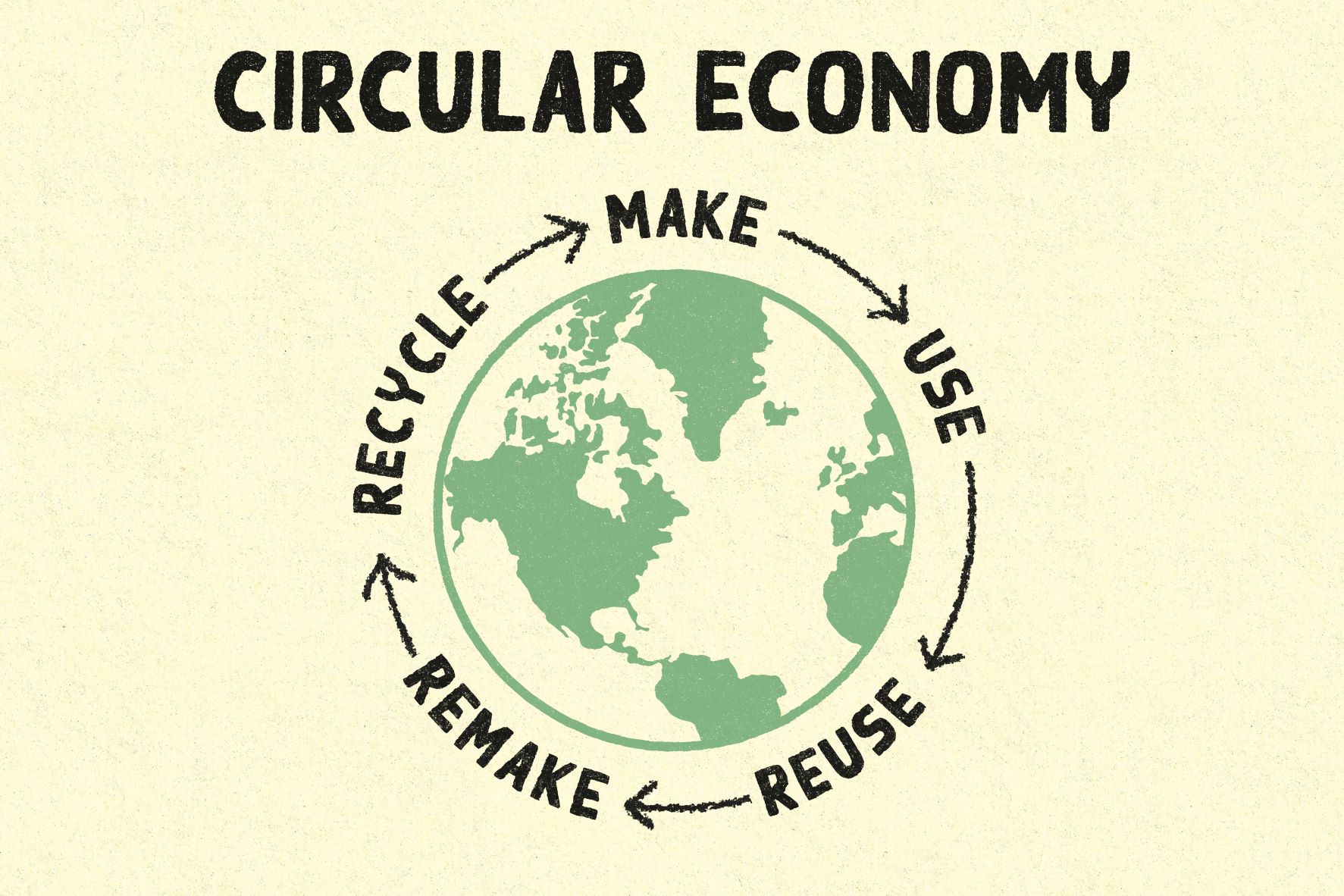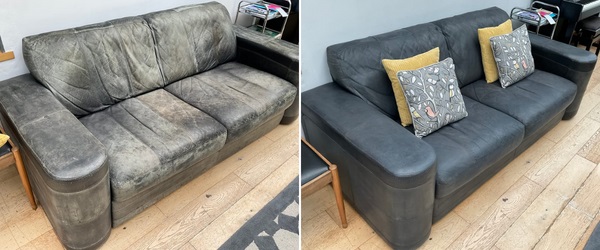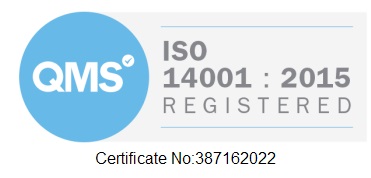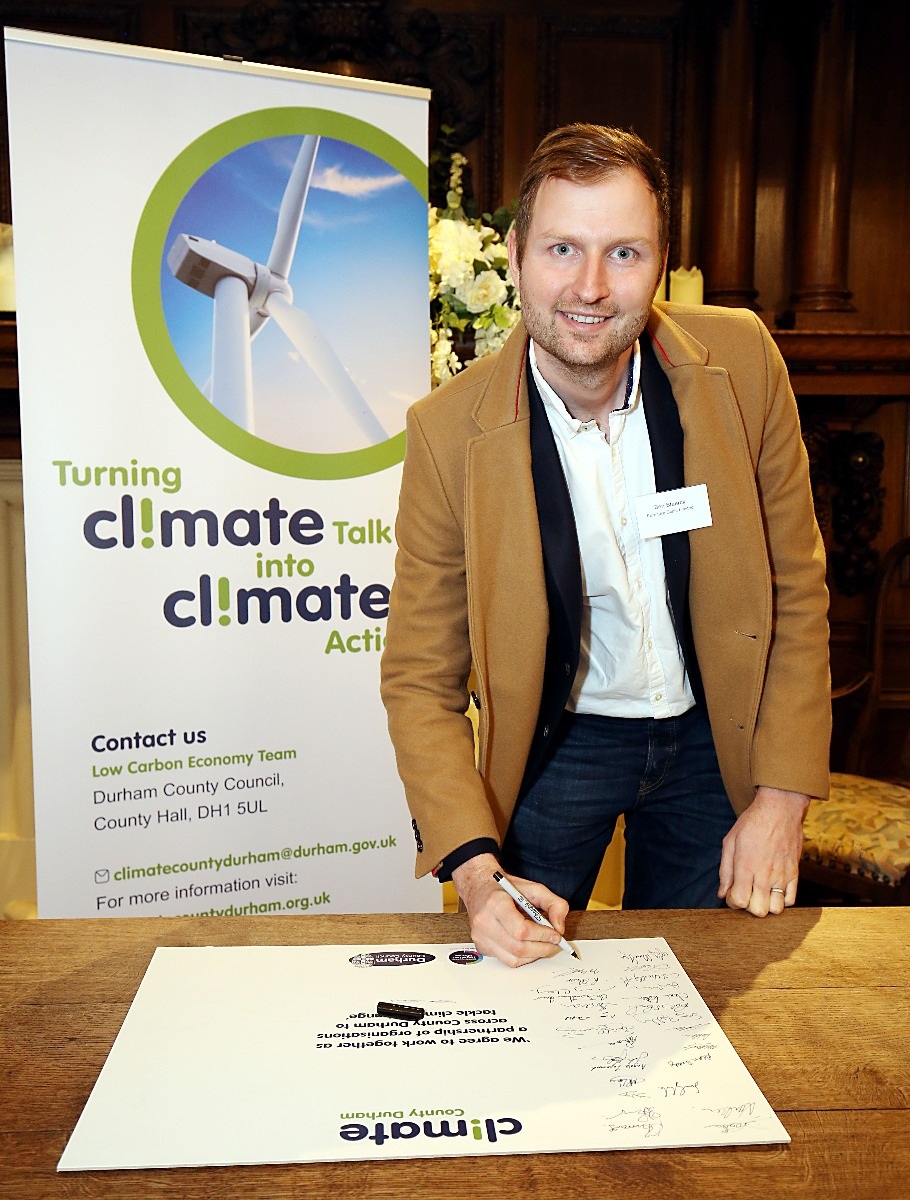-
You have no items in your shopping cart.


The circular economy is a framework based on three key principles:
Eliminating waste and pollution.
Keeping products and materials in use (by circulating them).
Regenerating natural systems/nature.
In a circular economy, products are constructed to last longer, people and communities share resources, and businesses operate to create more value for today and the future generation through reusing and recycling materials.
Many things that we buy nowadays encourage us to be part of a throwaway society, and we all need to do what we can to make sure we move away from this culture and play a role in the circular economy.
At Furniture Clinic we take our environmental responsibility very seriously. The products that the company produce have always been based around upcycling and extending the life of your belongings and we have not deviated from this ethos since we were founded in 2004. Furniture Clinic’s products and services are all about making things last longer by looking after them, but also restoring items rather than buying new.
But it doesn’t stop there. In March this year, we received our ISO 14001 accreditation for our environmental management systems that we have in place, and this means we are now internationally recognised for an on-going programme of environmental improvements.
This blog looks at some of the benefits of upcycling and what we, at Furniture Clinic, have achieved so far in making us a more environmentally sustainable business.
Upcycling. Circular Economy. Sustainability. Carbon Offsetting. These buzz words have become common place in the English language and all businesses seem to be talking about them. But this really is what Furniture Clinic is all about – as we manufacture and sell products to extend the life of your belongings.
When you buy something, you should always buy with the aim of making things last. We often talk about ‘fast fashion’, but we now also talk about ‘fast furniture’ (low-quality, mass-produced, low-cost items) which is a somewhat worrying trend and goes against the idea of sustainability.

It's easy to restore a damaged sofa
Let’s think about a leather sofa bought several years ago which is looking tired or is damaged. Restoring it or upgrading it is much kinder to the environment than sending it to landfill, where it will take many years to degrade, and it will cost you so much less. Consider repairing it yourself or, if that seems too daunting, get in a technician (like those in our Repair Service Network) to carry out the job. If you really are determined to get rid of that sofa, consider donating it to a local charity, list it for free collection on your local Facebook group or even give it to a local furniture repair company or upholsterer – rather than taking it to the tip or arranging for the local council or salvage collection company to pick it up – as they may be able to sell it, restore it or re-use some of its parts.
Regular cleaning, inspection and maintenance of furniture, car seats, handbags and clothing will also help to extend the life of items. Using a protection cream on your leather items, for example, will repel spills and stains as well as extend the life of the product.

As mentioned above, we are now ISO 14001 accredited through our environmental management system, which enables us to evaluate our environmental impact. We have and will continue to develop various environmental initiatives as illustrated by some examples below:
![]()
Look out for this symbol on our bottles
Last year, when a new plastic tax was introduced, many companies started to include a percentage of recycled plastic in their bottles. At Furniture Clinic, we decided to go one step further even though it did cost us more. We introduced bottles that are made from 100% recycled plastic.
Our bottles and lids have always been recyclable, so when finishing any of our products please do make sure that you wash them out and put them in your recycling bin. When we send items to you direct from our factory, we always use cardboard, cornstarch or paper packaging.
Our Factory
We use light sensors throughout our building, and we also encourage a paperless office by restricting access to printers.
Our Business Practices

Our Managing Director, Ben Staerck, signing the Climate County Durham agreement
Back in November 2021 we joined forces with other local businesses to commit to Durham County Council’s ‘Climate County Durham’ programme and pledged to reduce our carbon impact.
We have various company policies in place to help reduce our carbon impact. For example, where possible, we always purchase from local suppliers rather than ordering from national or international companies. Our purchasing policy which refers to, and restricts the use of, single use plastics. The only cars the company has now are electric, and our company vehicle policy requires staff to use electric vehicles for company transport but, where this is not possible, journeys must be offset.
Like many businesses, we are on a journey to improve our environmental footprint and we will continue to update you on new initiatives through our blog posts, emails and social media.
Environmental issues are regularly highlighted in the news, and we need to recognise some of the challenges the next generation will face if we don’t act now.
Times are currently tough with the cost of living crisis, and we all need to consider more affordable and sustainable solutions when considering buying new.
So, let’s work together to extend the life of our planet by upcycling through repairing, restoring and renovating as we all play our part in the circular economy!